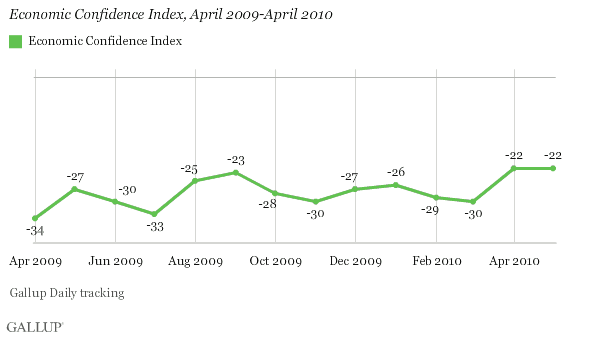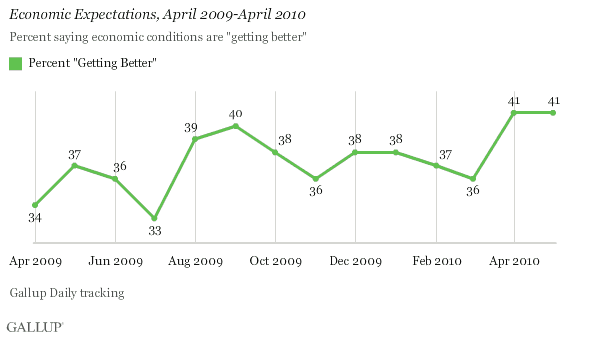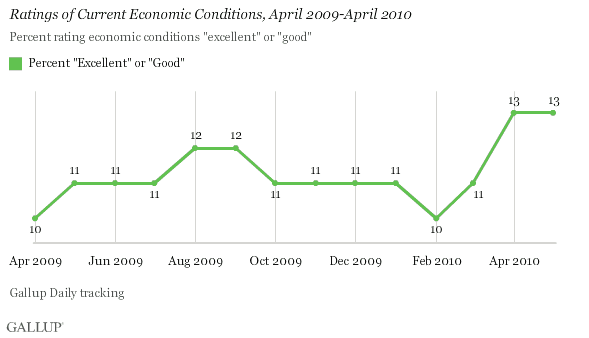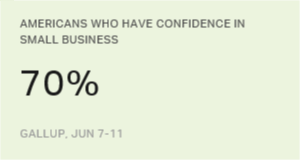PRINCETON, NJ -- Despite the financial crisis in Greece and the European Union, extreme stock market volatility, and the surging price of gold, Americans' economic confidence remains at its best level of the year in early May. Gallup's Economic Confidence Index is at -22 for the week ending May 9 -- matching its April level and representing an improvement of 8 percentage points compared with March.

Economic Outlook Most Positive Since Recession Began
Forty-one percent of Americans believe the economy is "getting better" in early May, matching April, which is the highest level of optimism about the future direction of the U.S. economy since Gallup began daily monitoring in January 2008. Despite the increase in optimism in April and early May, 54% continue to assert that the economy is "getting worse."

Current Economic Conditions Ratings Also Improving
Thirteen percent rate current economic conditions as "excellent" or "good" in early May -- also the same as in April -- and the highest percentage of such ratings since September 2008. At the same time, 44% rate the economy as poor -- essentially unchanged from April.

It appears improving job market conditions and increased consumer spending are outweighing global financial concerns as Americans evaluate the outlook for the U.S. economy, at least at this point. Now that there appears to be at least a temporary fix in place for the situation in Greece and the European Union, this seems likely to continue to be the case.
On Friday, the Reuters/University of Michigan consumer sentiment index will be released. Given its relatively small sample size, its findings are often hard to predict. However, based on Gallup's Economic Confidence Index, it should be about the same as in April, with both representing high points for confidence in 2010.
Regardless, May's improved confidence levels are a positive for the U.S. economy, as are the job market improvements and increased consumer spending that are driving it.
Review and export the complete daily trends on these measures: Economic Indexes; Consumer Spending; Economic Outlook; Economic Conditions; Job Market; U.S. Workforce
Learn more about Gallup's economic measures.
For Gallup Daily tracking, Gallup interviews approximately 1,000 national adults, aged 18 and older, each day. The Gallup consumer spending results are based on random half-samples of approximately 500 national adults, aged 18 and older, each day. Results for May are based on telephone interviews with more than 3,400 adults. For these results, one can say with 95% confidence that the maximum margin of sampling error is ±3 percentage points. Results for the various breakouts reported here are based on interviews with more than 1,000 respondents, with a maximum margin of error of ±3 percentage points.
Interviews are conducted with respondents on landline telephones and cellular phones.
In addition to sampling error, question wording and practical difficulties in conducting surveys can introduce error or bias into the findings of public opinion polls.
